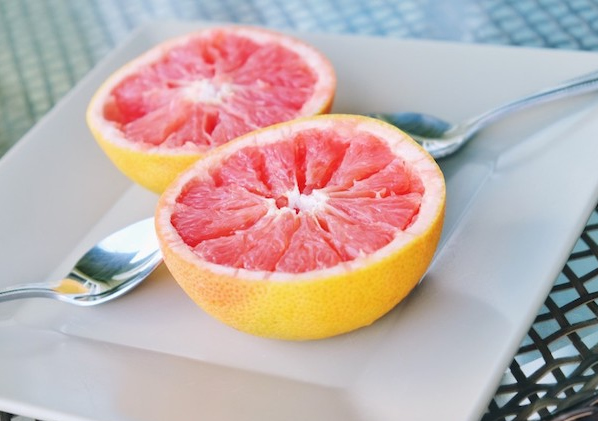When to drink grapefruit juice for fertility
When to drink grapefruit juice for fertility : Fertility is a topic that has been of great importance and interest to many, especially those trying to conceive. Over the years, myriad methods, therapies, and natural remedies have been suggested to boost fertility. Among the vast array of foods and drinks purported to aid in this endeavor, grapefruit juice has emerged as a popular option. This essay will delve into the significance of grapefruit juice in the realm of fertility, examining when it might be most beneficial to consume, and the underlying reasons for its association with increased fertility.

When to drink grapefruit juice for fertility
Historical Context and Traditional Uses
The grapefruit, a subtropical citrus fruit known for its slightly sour and bitter taste, has long been consumed for its many health benefits. Historically, various cultures have prized the grapefruit for its therapeutic properties, including its potential to enhance vitality and well-being. Although its direct association with fertility hasn’t been a significant historical emphasis, the fruit’s broader health benefits might indirectly link to improved reproductive health.
Nutritional Profile and Its Relevance to Fertility
A closer look at the nutritional makeup of grapefruit juice reveals a plethora of vitamins, minerals, and antioxidants. Among them, vitamin C, potassium, and folic acid stand out as particularly relevant to reproductive health.
- Vitamin C: Known for its immune-boosting properties, vitamin C can also serve as an antioxidant, which helps in protecting sperm from oxidative stress. This could potentially enhance sperm health and mobility.
- Potassium: This essential mineral aids in balancing the body’s electrolytes. Balanced electrolytes can ensure optimal function of the reproductive system.
- Folic acid: Often recommended for pregnant women or those trying to conceive, folic acid helps prevent neural tube defects in babies and can also play a role in sperm health.
Given this nutritional profile, one might wonder if drinking grapefruit juice can directly influence fertility. It’s this rich nutritional composition that has led many to believe that grapefruit juice could be an elixir for those trying to conceive.
Grapefruit Juice and Cervical Mucus
Perhaps the most compelling reason for the association between grapefruit juice and fertility is its reported effect on cervical mucus. Cervical mucus plays a vital role in conception. Around the time of ovulation, cervical mucus becomes more slippery and stretchy, resembling the consistency of raw egg whites. This consistency facilitates the movement of sperm through the cervix and into the uterus, ultimately aiding in the sperm’s journey to meet the egg.
Anecdotal evidence suggests that consuming grapefruit juice can increase the quantity and improve the quality of cervical mucus. The exact reason for this effect remains a topic of speculation. Some believe that the enzymes in grapefruit juice could affect estrogen levels, leading to increased cervical mucus production. Since the fertile window is closely associated with this mucus change, many women choose to drink grapefruit juice in the days leading up to ovulation.
Interactions with Medications
While grapefruit juice may offer potential benefits, it’s crucial to consider its interactions with medications. Grapefruit juice can interfere with enzymes in the liver responsible for breaking down several drugs. This can increase the concentration of these drugs in the bloodstream, potentially leading to side effects. Some of these drugs include certain antihistamines, thyroid medications, and even some medications used in fertility treatments.
As such, if one is on any medication, it is imperative to consult with a healthcare provider before incorporating grapefruit juice as a regular part of a fertility-boosting regimen.
Optimal Timing and Quantity
Given its potential benefits and the importance of cervical mucus around ovulation, the best time to drink grapefruit juice for fertility purposes might be in the days leading up to ovulation. However, this doesn’t mean one should consume it in large quantities. Moderation is key. One to two glasses a day is often recommended, but again, this is based more on anecdotal evidence than robust scientific research.
Research Limitations and The Need for Further Study
Despite the numerous personal accounts and age-old beliefs, there’s a limited body of scientific research directly linking grapefruit juice consumption to enhanced fertility. Most claims are anecdotal and lack rigorous scientific backing.
As with many natural remedies and traditional practices, what might work for one person might not necessarily work for another. Personal physiology, overall health, diet, and lifestyle can all play significant roles in determining one’s fertility. It’s crucial to remember that while grapefruit juice may aid some, it’s unlikely to be a magic potion for fertility for all.
Incorporating Grapefruit Juice into a Holistic Approach
The journey to enhance fertility isn’t solely about consuming a particular food or drink. It’s about a holistic approach to health. A balanced diet, regular exercise, managing stress, getting adequate sleep, and avoiding toxins are all integral to boosting fertility.
For those interested in trying grapefruit juice as a fertility aid, it’s advisable to incorporate it into a broader strategy that considers overall well-being. Drinking grapefruit juice while also consuming a diet rich in processed foods, for example, might not yield the desired outcomes.
In the end, while grapefruit juice offers a tantalizing promise for some, it should be seen as one piece in the complex puzzle of fertility. As research evolves and more insights emerge, one can hope for a clearer understanding of its role in the intricate dance of conception.
How jujube affects your health and its properties
Why is ginseng so beneficial? How does it affect our bodies?
Comprehensive Analysis of Asthma: Causes, Diagnosis, and Treatment Strategies
How to detect stomach cancer early


